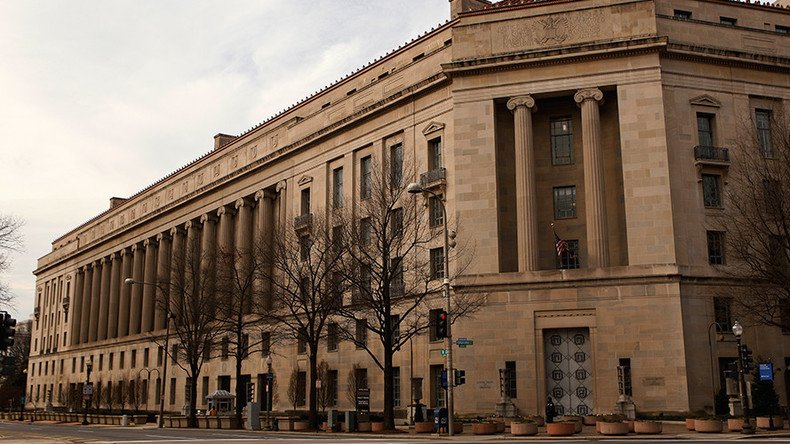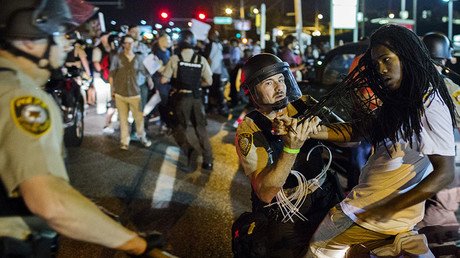Stop eroding faith in gov’t: DOJ warns courts about fining & jailing poor people

The US Justice Department cautioned local courts that it is unconstitutional to jail someone for not paying fines without determining whether they are able to pay, and warned against using court fees to generate revenue for cities.
The warnings came as part of an effort to reform court practices that “perpetuate poverty and result in unnecessary deprivations of liberty,” the Justice Department said.
“The consequences of the criminalization of poverty are not only harmful – they are far-reaching,” said Attorney General Loretta Lynch in a statement. “They not only affect an individual’s ability to support their family, but also contribute to an erosion of our faith in government.”
She added that abusive court practices that disproportionally affect the poor erode trust in the government. The legal system should treat all Americans the same regardless of their economic status, she said.
Justice Department Announces Resources to Assist State and Local Reform of Fine and Fee Practices https://t.co/BQBcI3wh5g
— Justice Department (@TheJusticeDept) March 14, 2016
As part of the notice, the Justice Department sent a letter to state and local courts reiterating multiple constitutional principles, including that courts must consider alternatives to jail when defendants cannot pay the appropriate fines and fees; that sufficient notice must be given when enforcing fee collection; that courts cannot require fee payments in return for access to judicial hearings, and that courts cannot suspend licenses or use arrest warrants as a means to coerce payments.
“Individuals may confront escalating debt; face repeated, unnecessary incarceration for nonpayment despite posing no danger to the community; lose their jobs; and become trapped in cycles of poverty that can be nearly impossible to escape,” the letter reads.
“In addition to being unlawful, to the extent that these practices are geared not toward addressing public safety, but rather toward raising revenue, they can cast doubt on the impartiality of the tribunal and erode trust between local governments and their constituents.”
These issues have made national headlines since protests in Ferguson, Missouri placed local police and court behavior under the microscope, particularly when it comes to their effect on minority communities and the poor. The Justice Department accused the city of disproportionally targeting African-Americans for fines, and of using that money to fill the municipal coffers.
According to the Washington Post, some towns in St. Louis County generated 40 percent of more of their annual revenue from fines and fees gathered by their court systems.
In order to tackle these problems, the Justice Department said Monday it will make $2.5 million in grants available to jurisdictions “to develop strategies that promote appropriate justice system responses, including reducing unnecessary confinement, for individuals who are unable to pay fines and fees.”
While the court system in the St. Louis area has been scrutinized most heavily, it’s not the only place in the country accused of behavior the federal government says is common across the US. Just last week, a judge in Michigan was ordered by a circuit court to stop jailing poor defendants because they couldn’t pay fees and fines. Now, he will have to consider their ability to pay before determining that incarceration is appropriate.
Michigan judge ordered to stop jailing poor people over fees https://t.co/EIZzp6WS7Ppic.twitter.com/8QdWkpJv66
— RT America (@RT_America) March 11, 2016
Meanwhile, a report from Illinois last year found that prisons would sue former inmates over their time behind bars in an attempt to recoup the cost of their “room and board” or medical fees.














